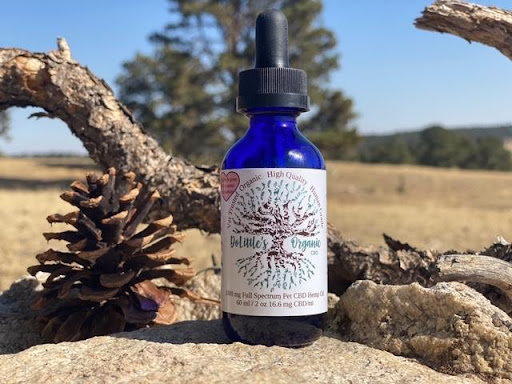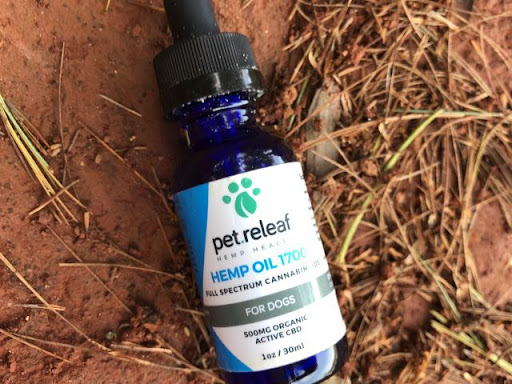
For athletes and fitness enthusiasts, muscle soreness is often an inevitable consequence of intense workouts. Whether it’s a long run, a grueling weightlifting session, or an intense cycling spin class, post-workout muscle soreness, known as delayed onset muscle soreness (DOMS), is a common experience. Traditionally, people have turned to methods such as ice baths, stretching, and over-the-counter pain medications to alleviate this discomfort. However, in recent years, a new option has been gaining popularity: cannabidiol (CBD).
CBD, one of the many compounds found in the hemp plant, is emerging as a promising solution for reducing post-workout muscle soreness. Unlike tetrahydrocannabinol (THC), another well-known cannabinoid, CBD doesn’t produce the psychoactive effects commonly associated with hemp use. Instead, it interacts with the body’s endocannabinoid system to support a range of physiological processes, including pain management and inflammation reduction.
Understanding Muscle Soreness
To understand how CBD might play a role in reducing muscle soreness, it’s essential to first grasp the root cause of DOMS. When you exercise, particularly when you engage in strenuous or unfamiliar activities, your muscle fibers experience microscopic tears. These tears are a normal part of muscle growth and strengthening, as they repair themselves and adapt to handle similar stress more efficiently in the future.
However, the process of muscle repair and recovery often comes with discomfort. DOMS typically sets in 24 to 48 hours after exercise and can last for several days. While DOMS is not necessarily harmful, it can be uncomfortable and hinder your ability to continue exercising or engage in daily activities.
The inflammation response is one of the primary contributors to this discomfort. After intense physical activity, the immune system sends inflammatory cells to the damaged muscle fibers, which results in swelling and soreness. This is where CBD could be helpful, as research has shown it has anti-inflammatory properties that may support recovery by reducing the intensity and duration of muscle soreness.
How CBD Works in the Body
CBD interacts with the endocannabinoid system (ECS), a network of receptors located throughout the body. The ECS plays a critical role in maintaining homeostasis, or balance, within the body, regulating functions like sleep, mood, appetite, and immune response.
The two primary types of receptors in the ECS are CB1 and CB2 receptors. CB1 receptors are predominantly found in the brain and central nervous system, while CB2 receptors are mainly located in the peripheral organs and tissues, particularly those associated with the immune system.
When CBD is introduced into the body, it doesn’t bind directly to these receptors. Instead, it modulates their activity, potentially influencing the body’s response to pain and inflammation. Research suggests that CBD may encourage the ECS to produce more of its natural cannabinoids, enhancing the system’s ability to reduce pain perception and control inflammation.
CBD’s Anti-Inflammatory Properties
Several studies indicate that CBD may possess anti-inflammatory properties, making it an appealing option for those dealing with post-workout muscle soreness. Inflammation is a key factor in the development of DOMS, as it is the body’s natural response to muscle damage.
A 2015 review published in Bioorganic & Medicinal Chemistry suggested that CBD could support anti-inflammatory processes by acting on different pathways within the body. By potentially lowering the production of inflammatory cytokines—small proteins released by cells during inflammation—CBD might help reduce the overall inflammation response in muscles. This, in turn, could minimize the intensity and duration of muscle soreness.
Additionally, a 2020 study published in the European Journal of Pain found that topical CBD could help reduce pain and inflammation related to arthritis when applied to the skin. While this research was focused on arthritis, the findings suggest that topical CBD could be effective for muscle soreness following exercise, as both conditions involve inflammation and pain in soft tissues.
Pain Management and CBD
CBD’s potential as a pain management tool is another reason it’s gaining popularity among athletes. The cannabinoid may support pain relief by interacting with the body’s pain receptors. The ECS, as mentioned earlier, plays a significant role in how the body perceives pain.
Several studies have demonstrated the potential analgesic properties of CBD. For example, a 2018 review published in Frontiers in Pharmacology highlighted CBD’s ability to modulate pain sensation through its interaction with serotonin receptors. Serotonin, a neurotransmitter that affects mood and pain perception, is linked to how we experience physical discomfort. By influencing serotonin levels, CBD may provide relief from both acute and chronic pain.
In the context of exercise-induced muscle soreness, this pain-modulating effect may allow athletes to recover more comfortably, enabling them to return to their training regimen more quickly.
Different CBD Products for Muscle Soreness
There are various forms of CBD available, each with its own method of application, and each may be more suitable for specific types of muscle soreness or personal preferences.
- Topical CBD Products: These include creams, balms, and lotions that can be applied directly to the affected muscles. Topical applications are popular because they allow the CBD to target specific areas of discomfort, making it ideal for localized muscle soreness. When applied to the skin, the CBD interacts with nearby cannabinoid receptors, offering targeted pain relief and reducing inflammation.
- Oral CBD Products: These include oils, capsules, and edibles. When consumed, CBD interacts with the entire ECS, providing a more systemic effect. This can be beneficial for athletes experiencing widespread soreness or those looking for general anti-inflammatory support.
- CBD Bath Bombs and Soaks: These products are designed to be used in a warm bath. Bathing in CBD-infused water allows the compound to be absorbed through the skin, providing full-body relief. Combined with the soothing effects of a warm bath, this can be an effective method for reducing soreness and tension after a workout.

CBD Safety and Considerations
While CBD offers many potential benefits for reducing muscle soreness, it’s important to note that individual responses to CBD can vary. Factors such as body weight, metabolism, and the severity of muscle soreness can influence how effective CBD is for a particular person. Therefore, it may take some experimentation to find the right dosage and method of application for optimal results.
Moreover, it’s crucial to ensure that the CBD products you’re using come from reputable sources and contain high-quality ingredients. Because the CBD industry is still relatively new and not as tightly regulated as other sectors, there can be variability in product quality. Look for products that have been third-party tested for purity and potency. If you are looking for ideas about the role of CBD in reducing muscle soreness after workouts, browse this site to learn more.
Lastly, athletes who compete in professional sports should be mindful of CBD use, as regulations regarding cannabinoids can vary depending on the sport or organization. While CBD is legal in many places, THC, its psychoactive counterpart, is still banned in certain sporting contexts. Using products with trace amounts of THC could lead to positive drug tests, so opting for broad-spectrum or CBD isolate products that are THC-free is essential.
Conclusion
CBD holds significant potential as a natural solution for reducing post-workout muscle soreness. Its anti-inflammatory and pain-relieving properties make it an appealing alternative to traditional methods such as over-the-counter painkillers. By supporting the body’s natural recovery processes, CBD may help athletes and fitness enthusiasts recover faster and more comfortably from intense exercise sessions.
However, as with any supplement or health regimen, it’s important to approach CBD use thoughtfully. Consulting with a healthcare professional, especially if you’re new to CBD or have any underlying health conditions, can help ensure that you use it safely and effectively.








